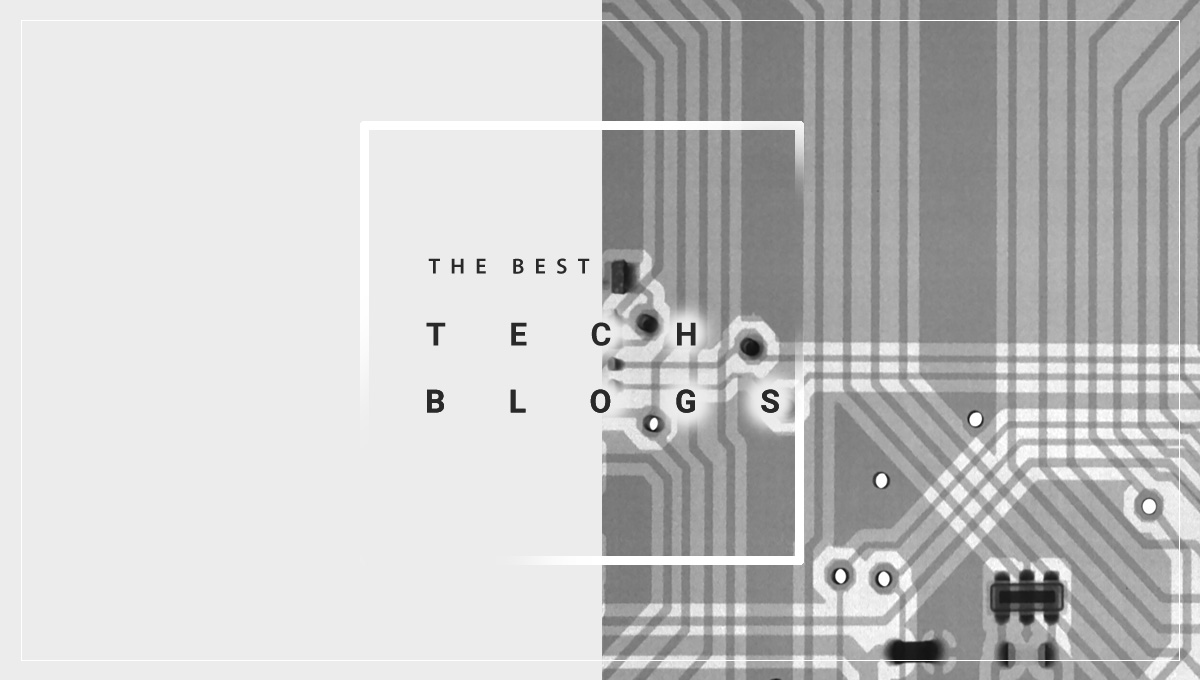Top Reasons to Follow the Best tech blog for Tech News and Tutorials
Top Reasons to Follow the Best tech blog for Tech News and Tutorials
Blog Article
Exactly How Blockchain Innovation Is Revolutionizing Data Protection
Blockchain technology is essentially altering the landscape of data safety and security by introducing a decentralized structure that guarantees improved openness and strength. Unlike conventional systems, which count on centralized information databases, blockchain disperses information throughout a network, minimizing vulnerabilities and solitary points of failing. Making use of sophisticated cryptographic strategies makes sure that information stays tamper-proof, promoting depend on among stakeholders and customers. As markets swiftly adapt to this modern technology, inquiries arise about its more comprehensive influence and potential obstacles. What ramifications does this change hold for future information defense approaches and regulatory frameworks? The responses might shock you (Best tech blog).
The Essentials of Blockchain
Blockchain technology, an advanced concept in digital data administration, essentially transforms just how details is kept and protected. At its core, a blockchain is a dispersed ledger that tapes transactions across a network of computer systems, guaranteeing transparency and immutability.
Secret to understanding blockchain is the hashing process, which secures transaction data right into an unique alphanumeric code. This cryptographic feature guarantees that any kind of alteration in the purchase information causes a completely different hash, therefore protecting against meddling. The agreement device, an additional important element, confirms and validates new transactions through a network of nodes, thereby getting rid of the demand for a central authority.
Additionally, blockchain's append-only structure guarantees that information, when included, can not be deleted or altered. This particular warranties a proven and permanent document of transactions, promoting trust fund among participants. Therefore, blockchain provides a durable structure for data stability, using sectors a trustworthy method for tracking and handling electronic info in a safe, clear manner.
Decentralization and Safety And Security
Decentralization, a core principle of blockchain innovation, significantly boosts information security by distributing control throughout a network rather than counting on a singular, centralized entity. By spreading data throughout many nodes, blockchain ensures that also if one node is jeopardized, the entire network stays safe and secure.

In addition, decentralization equips users with higher control over their data. Each individual in the network has accessibility to the whole blockchain, allowing them to confirm and investigate deals separately. This openness fosters trust fund among users, as they do not have to count on a main authority to guarantee information stability. On the whole, decentralization contributes in boosting information security in blockchain networks.

Cryptographic Methods
At the heart of blockchain technology, cryptographic methods play a crucial role in safeguarding data, guaranteeing both confidentiality and integrity. These strategies are foundational to the blockchain's ability to safely record purchases in a decentralized fashion. Cryptography in blockchain uses a mix of symmetric and uneven formulas to secure data, making it available only to licensed celebrations - Best tech blog. Public and exclusive essential pairs are central to this process, enabling safe verification and identity confirmation without disclosing delicate information.
Hash functions are another critical element, changing input information into a fixed-size string of personalities, properly producing a special digital fingerprint for each and every block. This makes sure that any attempt to modify anonymous the data will certainly cause a totally various hash, therefore preserving the immutability of the blockchain. Electronic trademarks confirm the authenticity and honesty of purchases, supplying a layer of non-repudiation.
The decentralized nature of blockchain, combined with robust cryptographic techniques, removes the requirement for intermediaries, decreasing potential vulnerabilities. As blockchain modern technology advances, developments in cryptography such as zero-knowledge proofs and homomorphic encryption remain to boost safety and security procedures, even more strengthening data protection in this cutting edge electronic journal system.
Use Situations Throughout Industries

In the medical care sector, blockchain guarantees the safe storage space and sharing of person documents, promoting interoperability while safeguarding sensitive data from unapproved accessibility. This modern Home Page technology encourages people with control over their clinical background and assists in smooth sychronisation among doctor.
Supply chain administration benefits substantially from blockchain's immutable journal, which makes certain traceability and credibility of items from beginning to customer. By improving transparency, blockchain assists mitigate issues such as counterfeiting and underhanded sourcing.
In addition, blockchain's decentralized nature is improving the energy field by allowing peer-to-peer power trading, where customers can deal excess renewable resource directly. This cultivates an extra sustainable and efficient energy community.
In the realm of intellectual residential property, blockchain offers a tamper-proof platform for designers to sign up and protect their jobs, making certain rightful attribution and fair compensation. These diverse use cases highlight blockchain's function as a crucial force in redefining information security across markets.
Future of Data Security
As we want to the future of data protection, blockchain technology is poised to play a crucial role in securing electronic details. With its decentralized and immutable attributes, blockchain provides a robust framework for securing sensitive information versus unapproved accessibility and cyber dangers. This innovation makes certain that once data is recorded, it is virtually impossible to modify without detection, thus providing a considerable benefit over typical data storage space approaches.
The assimilation of blockchain with other innovative innovations, such as artificial intelligence and the Web of Things (IoT), is expected to enhance information defense methods better. By leveraging smart contracts, companies can automate and apply safety and Get More Info security protocols, minimizing human error and enhancing efficiency. Additionally, blockchain's capacity to give transparent and traceable transactions will reinforce trust fund and liability in information management methods.
As governing landscapes evolve, blockchain's compliance-friendly nature will certainly come to be significantly pertinent. It can assist companies fulfill rigid information protection guidelines, such as the General Information Defense Law (GDPR) and the California Consumer Privacy Act (CCPA), by providing verifiable documents of information handling tasks. Eventually, blockchain's distinct qualities position it as a transformative tool in the continuous pursuit to safeguard the digital world versus ever-evolving cyber threats.
Final Thought
Blockchain modern technology represents a standard shift in information security by leveraging decentralization and cryptographic techniques to boost transparency, trust fund, and information integrity. Its capability to eliminate solitary factors of failing and utilize consensus systems substantially reduces the risk of fraud and cyberattacks. This innovative structure not only empowers customers with better control over their information however also lines up with regulative conformity. As cyber threats progress, blockchain emerges as an essential device for durable data protection throughout various industries.
Blockchain innovation is essentially modifying the landscape of information protection by introducing a decentralized structure that assures improved transparency and durability. Unlike traditional systems, which rely on central data repositories, blockchain disperses information across a network, decreasing vulnerabilities and single points of failing.Decentralization, a core principle of blockchain innovation, significantly improves data protection by dispersing control throughout a network rather than counting on a single, centralized entity.At the heart of blockchain modern technology, cryptographic methods play a critical role in guarding data, making certain both privacy and stability.Blockchain modern technology stands for a standard shift in information security by leveraging decentralization and cryptographic strategies to boost openness, trust fund, and data stability.
Report this page